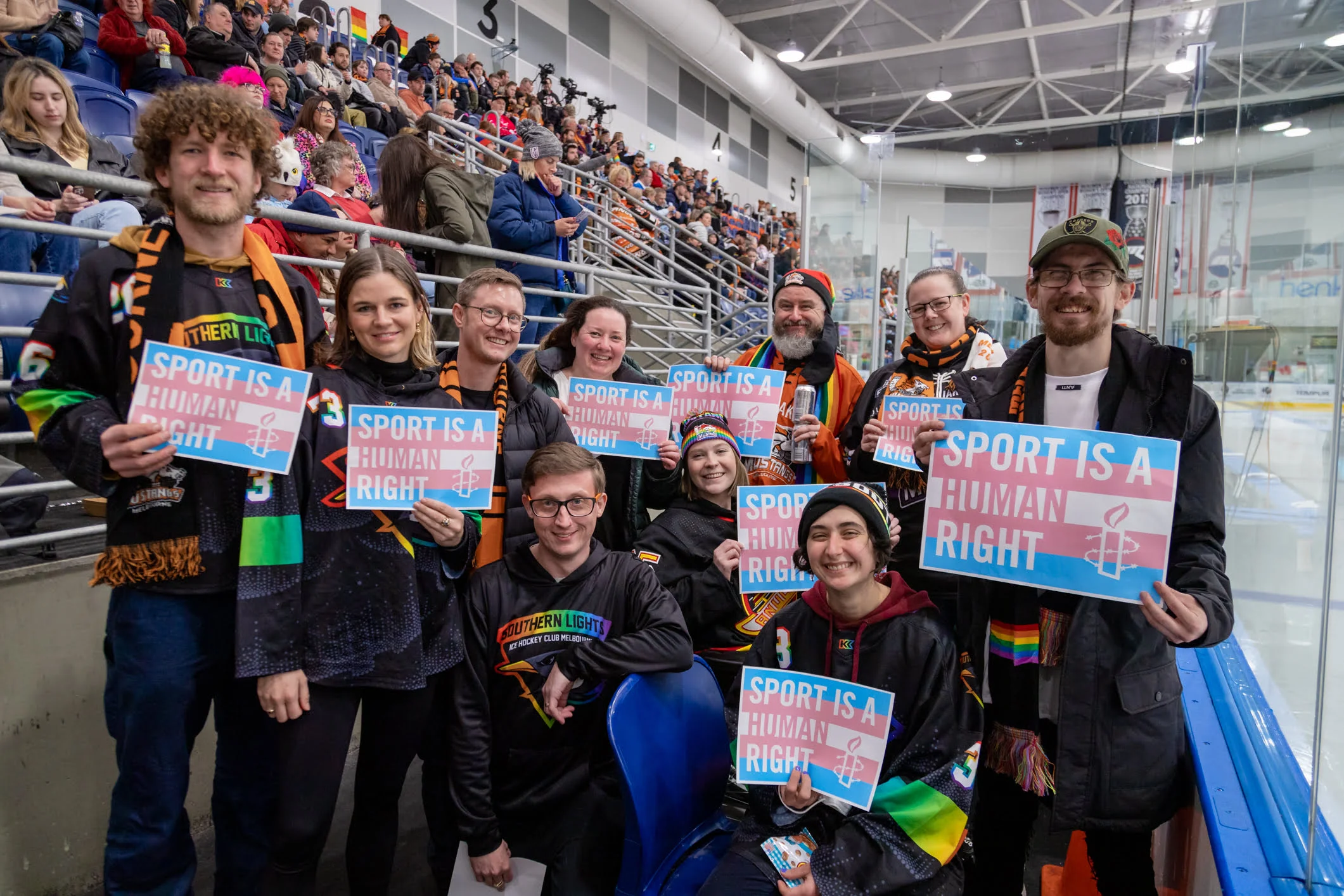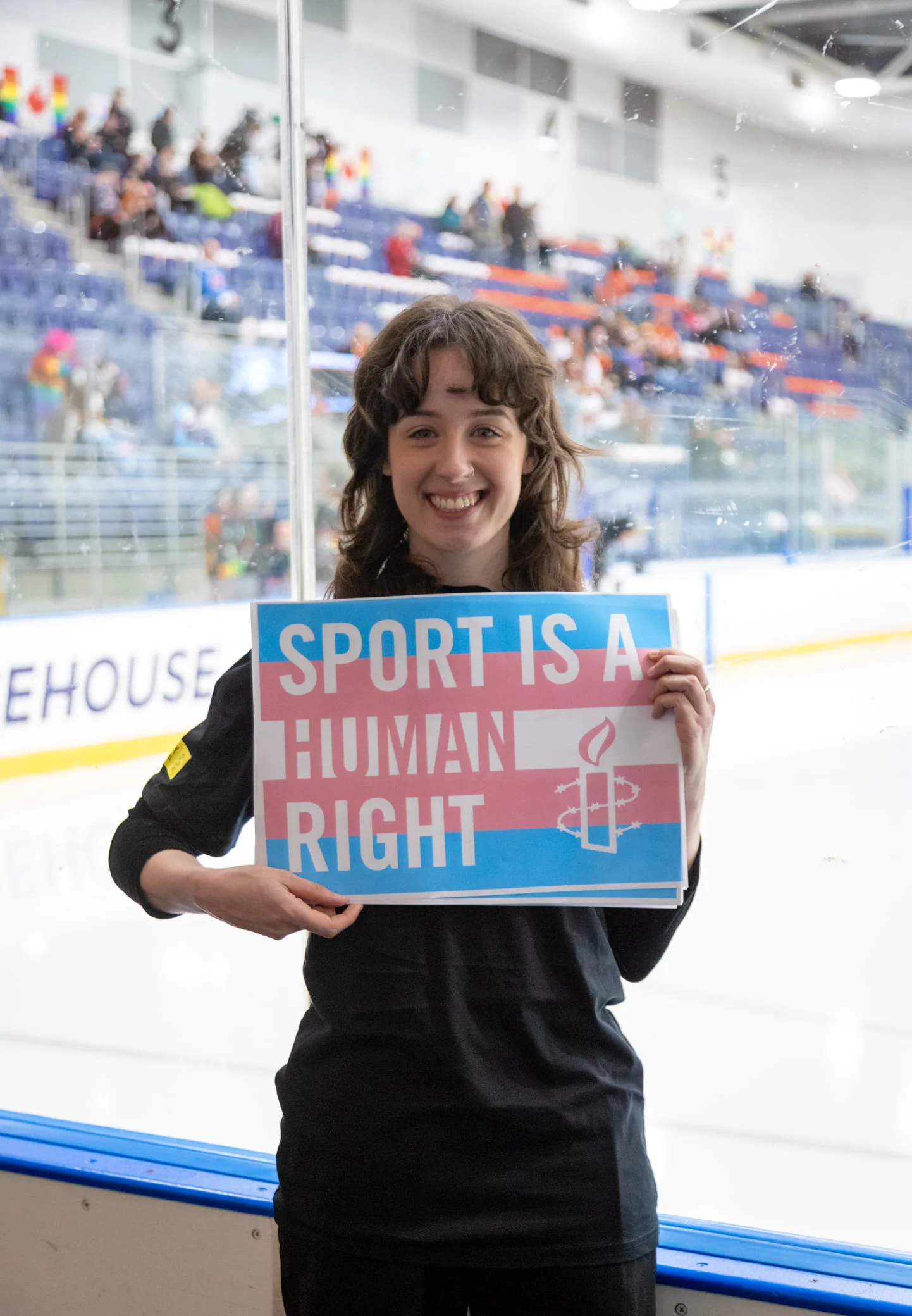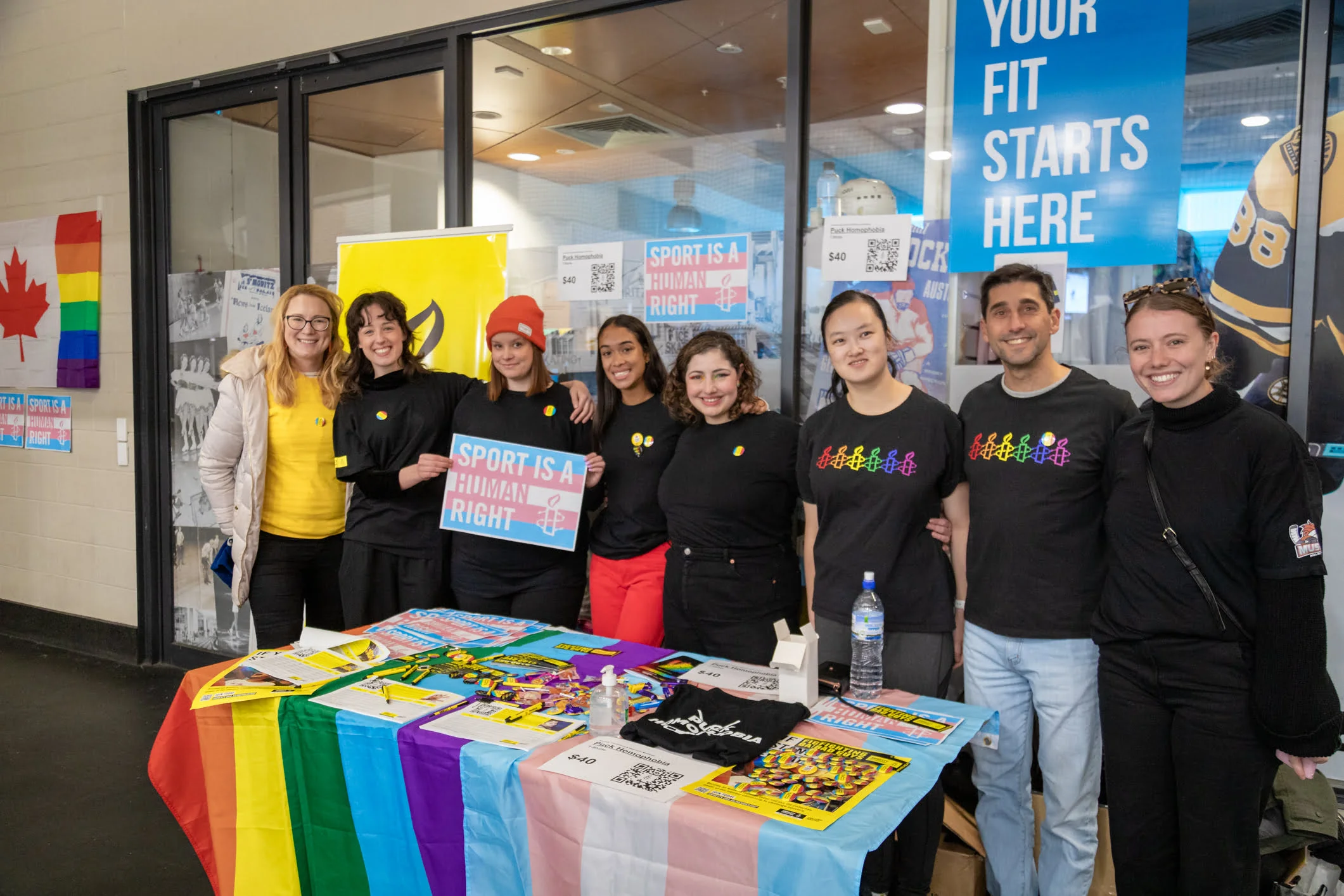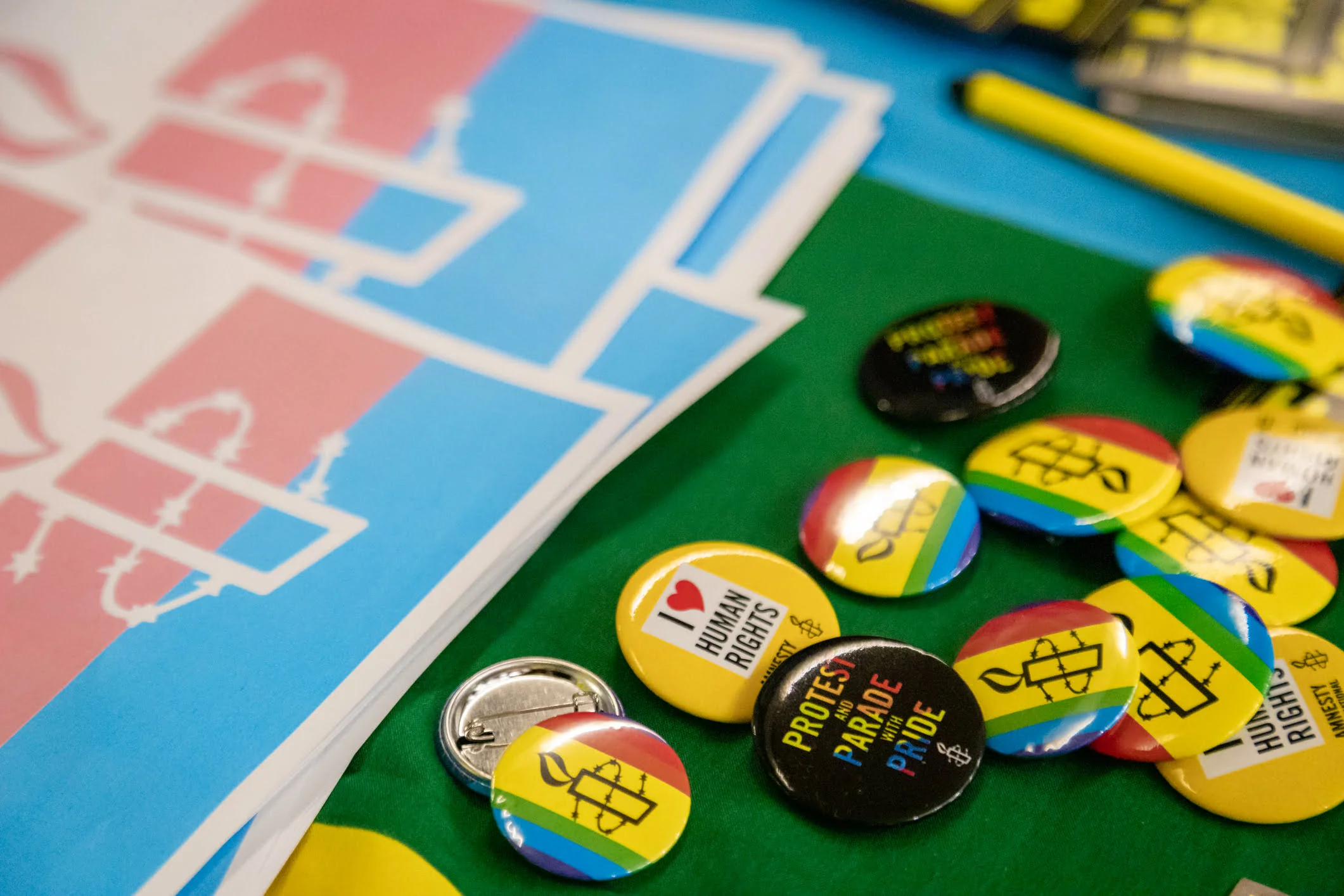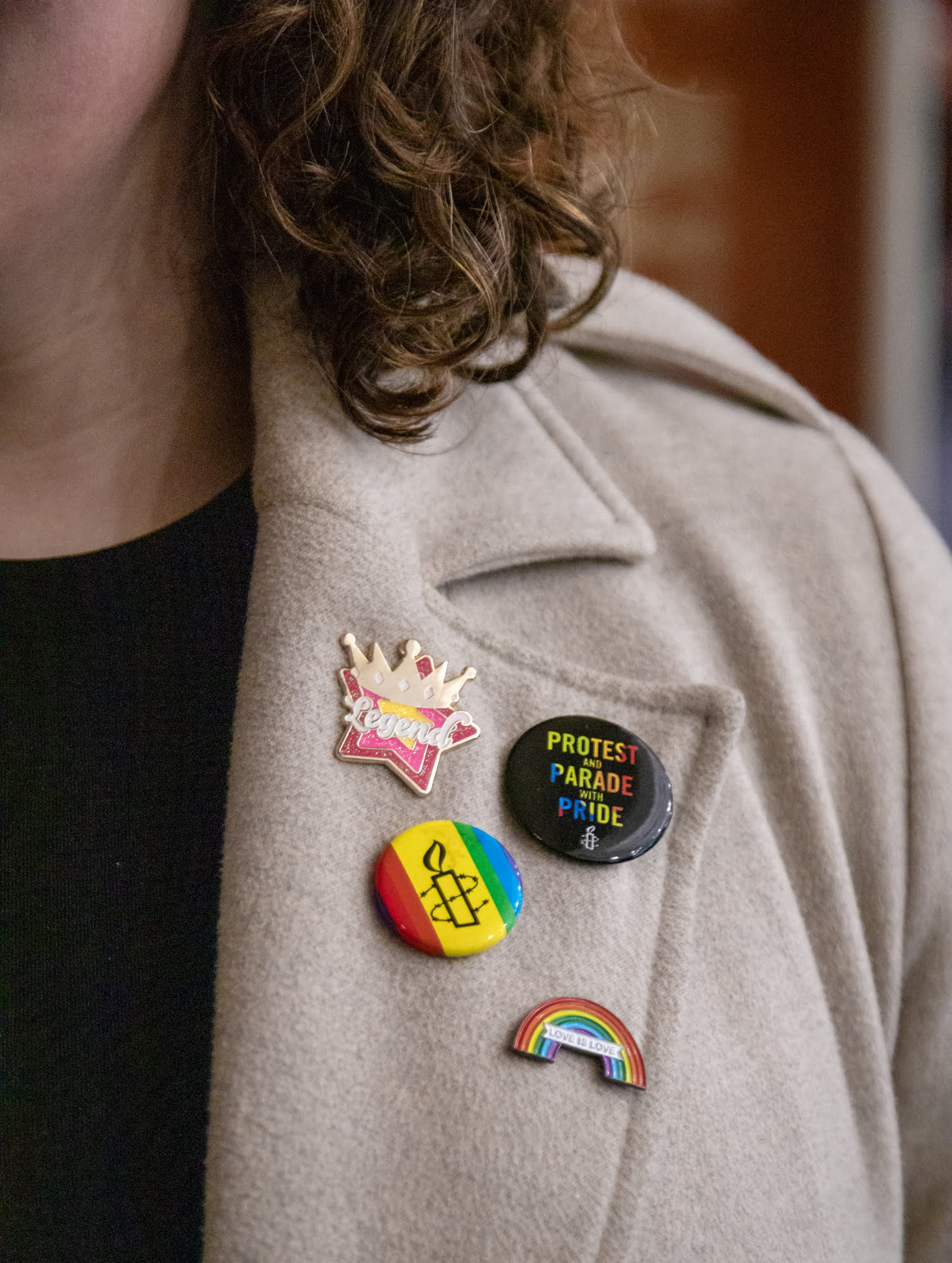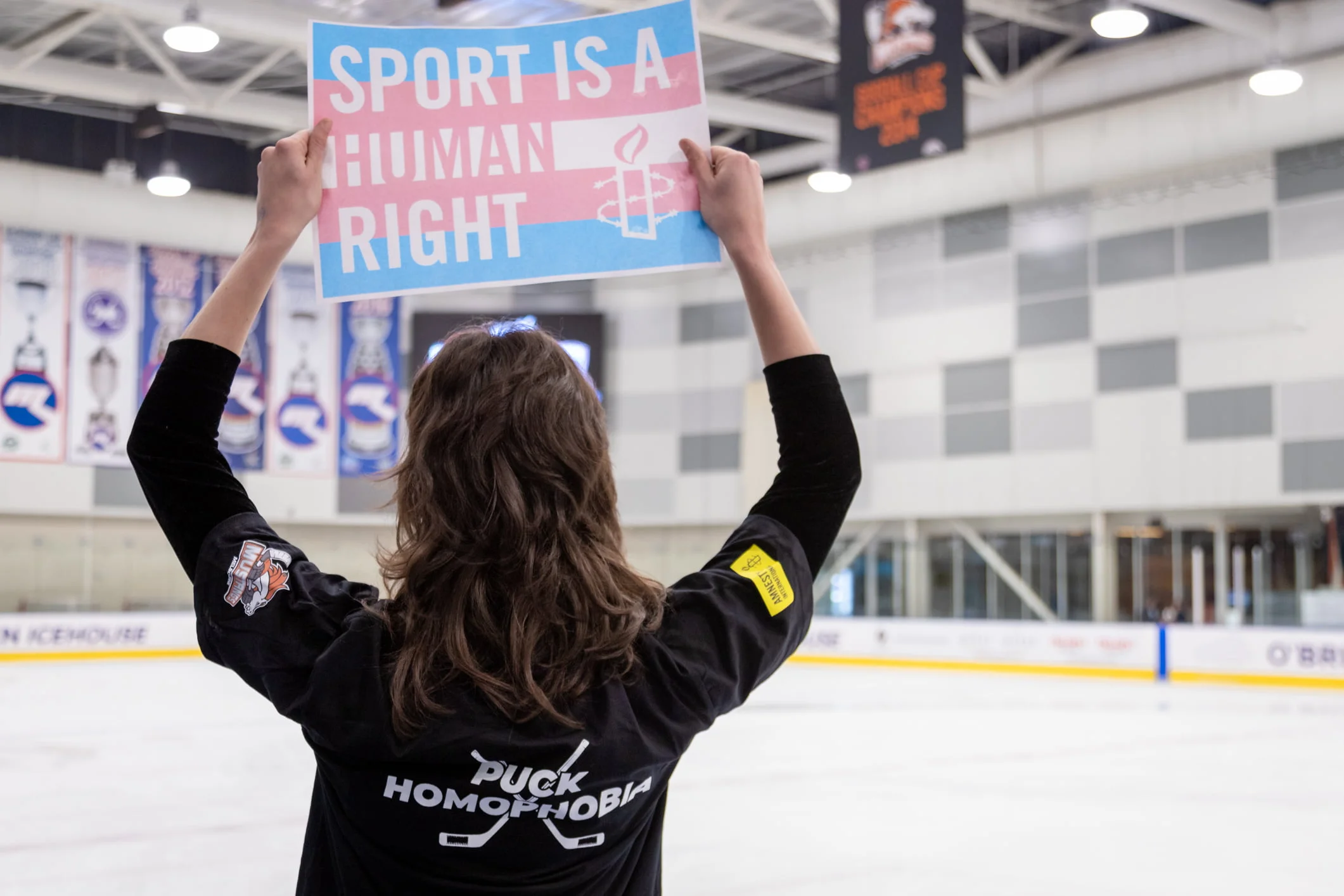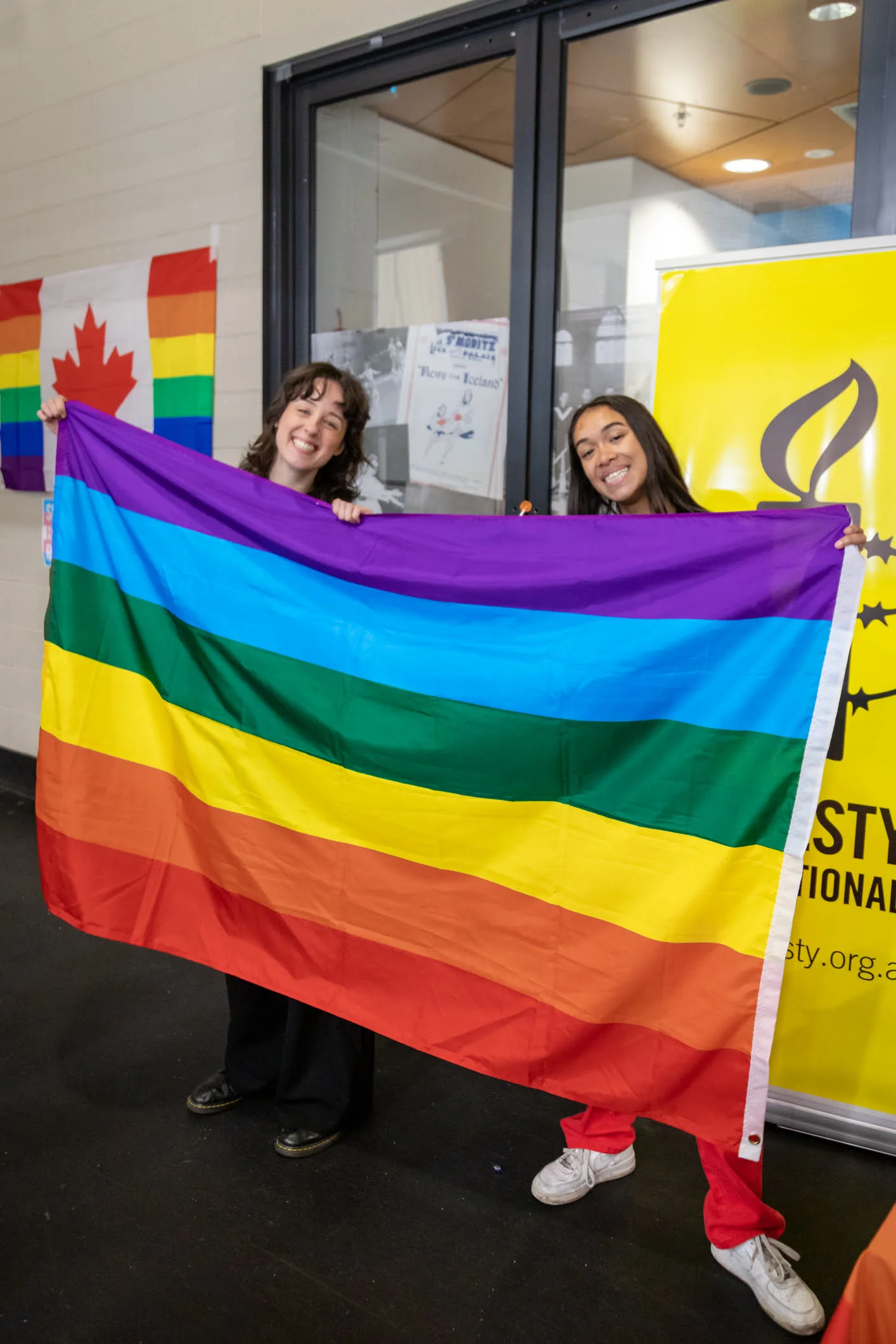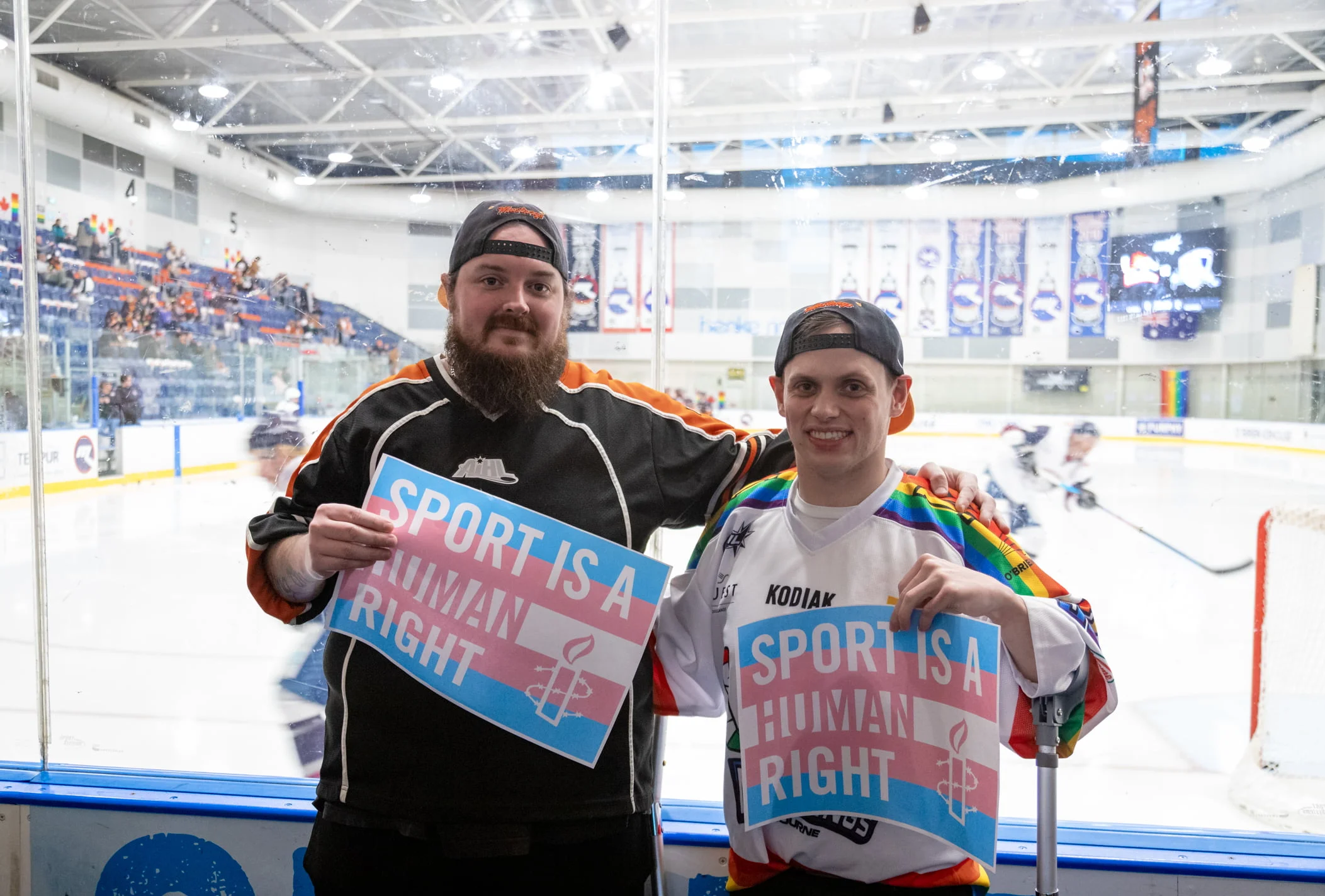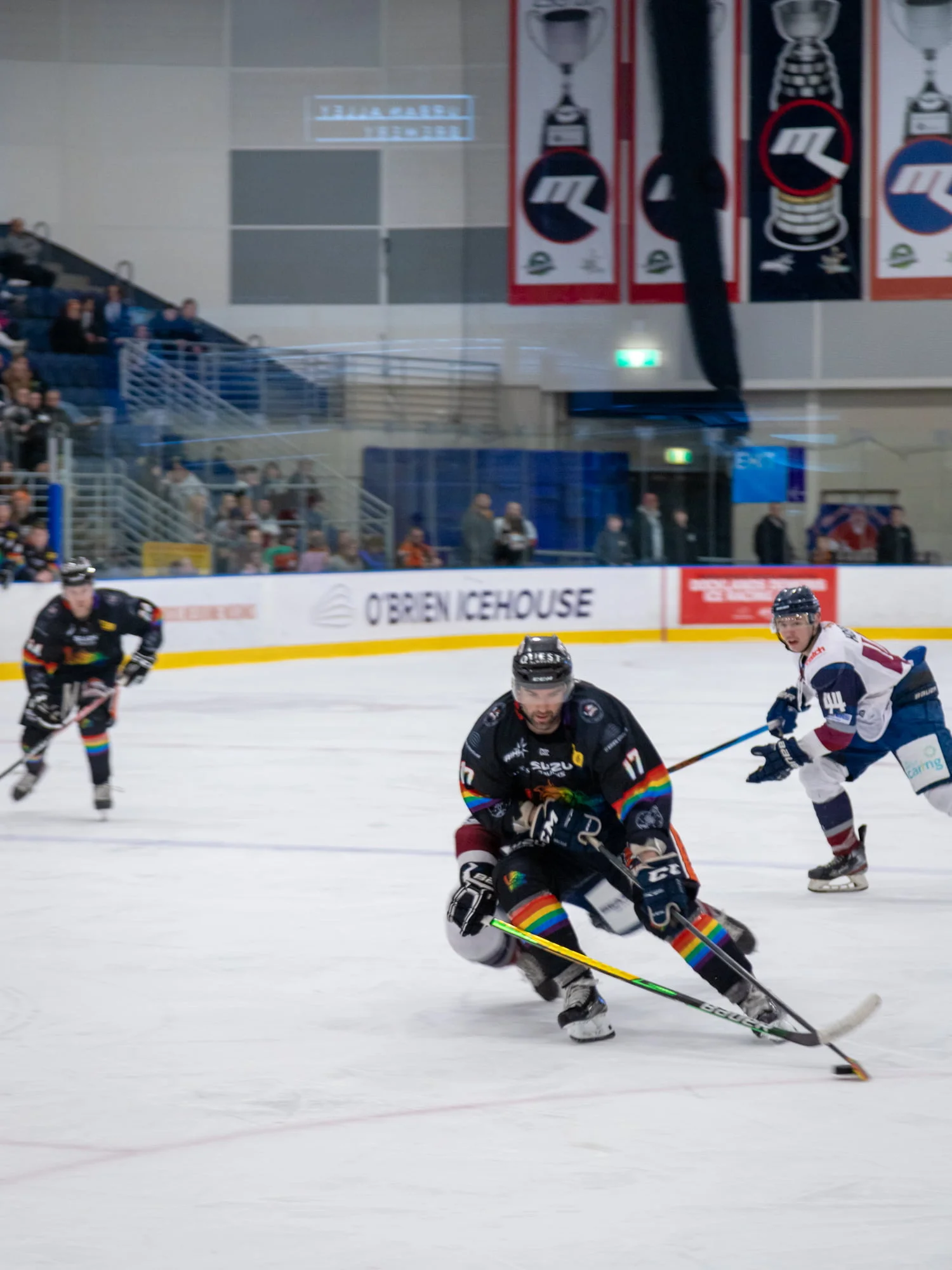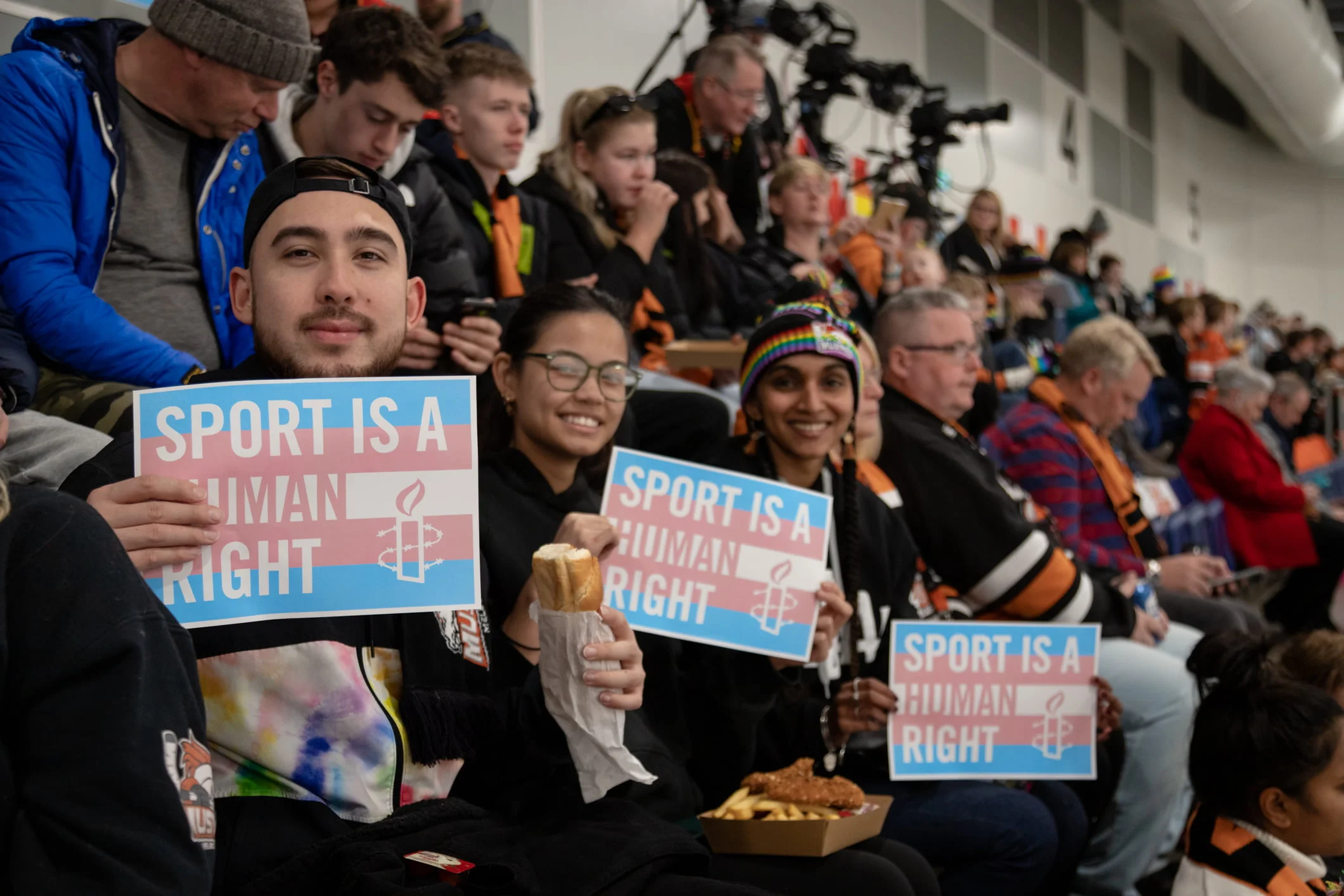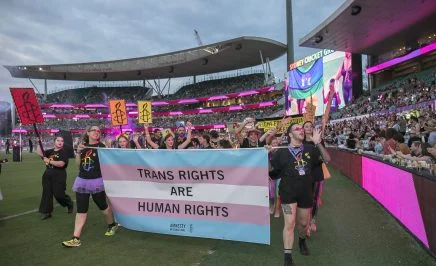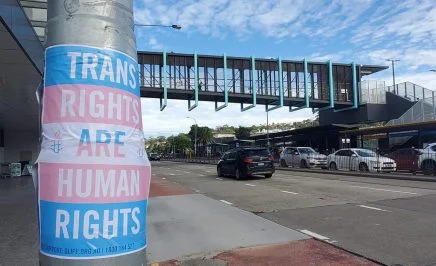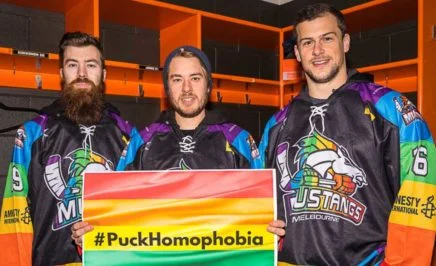What: #PuckHomophobia Melbourne Mustangs v. Sydney Ice Dogs pride game
When: Sunday, 7 August 2022
Where: O’Brien Ice House, Melbourne, Victoria, Australia
The Melbourne Mustangs Ice Hockey team donned rainbow jerseys at O’Brien Ice House to challenge the Sydney Ice Dogs in the fourth annual Australia Pride Ice Hockey Game for LGBTQIA+ rights. The thrilling, high contact pride game is a partnership between the Melbourne Mustangs and Amnesty International LGBTQIA+ activists that has been running since 2017.
Game day activities focussed on supporting genuine inclusion in sport, welcoming everyone to the sport of ice hockey and eradicating LGBTQIA+ discrimination from the game.
Since the start of the partnership over five years ago, we have seen a real shift in the attitude, behaviour and culture within the club and this hockey community.
In 2020, a study by Monash University highlights the use of pride games by sporting clubs as prejudice reduction interventions. It found that pride games drastically reduced the use of homophobic language in a range of sports, including ice hockey, community cricket, netball, Aussie rules, field hockey and roller derby.
There’s a lot we can do as players to challenge homophobia, and there’s definitely been a shift in the way people talk and act within the club.
Brendan McDowell, Mustangs Captain
Every year, we hear personal stories of how included people feel in this environment – for some people this is their first experience of inclusion and safety within a sporting community.
The recent success of annual pride games has seen two new ice hockey clubs emerge in Australia: the Southern Lights and Harbour Lights. The Harbour Lights has been acknowledged by the National Hockey League in America for their promotion of inclusion and diversity in the sport.
How pride games are challenging injustice
Pride games provide hope to recent negative developments for inclusion of LGBTQIA+ people in sport. These include:
- The International Swimming Federation’s exclusionary policy which effectively bans trans women and some intersex women from competing;
- A recent divisive Bill in Australia that would have excluded trans and gender diverse people, including children under the age of 12, from sport; and
- Manly players boycotting an NRL match over a pride jersey.
All of these send a dangerous message to LGBTQIA+ people, most alarmingly to LGBTQIA+ children, that they are not welcome.
It is critical that we have pride games like this, where elite athletes, teams and sporting clubs visibly demonstrate and genuinely commit to everyone being welcomed and safe in the sporting community.
Lucy Kenny, Amnesty Associate Campaigner
Sport is for everyone, and participation in sport is a human right. Together, we can continue to challenge injustice and ensure that LGBTQIA+ people can participate in sport safely and without discrimination.
Find out more about Amnesty’s LGBTQIA+ rights campaigning work.
